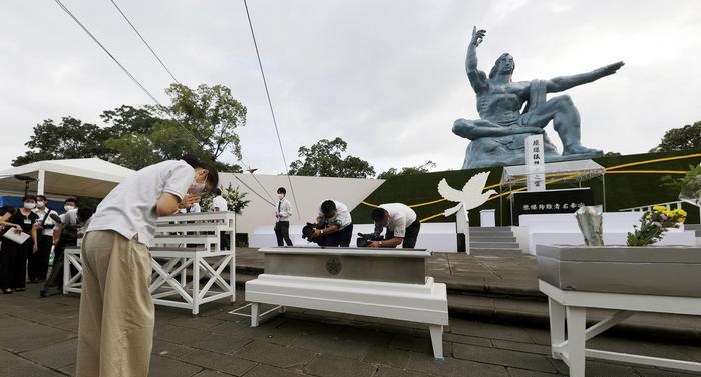
Japan observed the 75th anniversary of the US atomic bombing of the southern port city of Nagasaki on Sunday.
A minute of silence was held at 11:02 a.m. local time (0202 GMT), the moment that the bomb decimated the city.
The attack on Nagasaki occurred just three days after the US carried out the world's first ever atomic bombing in Hiroshima. The bomb that hit Nagasaki, known as Fat Man, destroyed most of the city and killed tens of thousands of people instantly. Approximately 74,000 people died from the bombing and its after-effects by the end of 1945.
Many survivors developed cancer and other illnesses due to the radioactive fallout that covered the city. They later faced discrimination due to their body deformations and health problems.
Six days after the bombing in Nagasaki, Japan surrendered, formally ending World War II.
Call for denuclearisation
The mayor of Nagasaki, Tomihisa Taue, urged world leaders to ban nuclear weapons during the ceremony. He also called on Japan's government to sign the Treaty on the Prohibition of Nuclear Weapons, saying the threat of the further use of nuclear arms was growing more than ever.
"If, as with the novel coronavirus, which mankind did not fear until it spread to our immediate environment, we only become aware of the threat of nuclear weapons when they are used again, we are in an irrevocable position," said Taue.
Japanese Prime Minister Shinzo Abe was in attendance, as were some of the few remaining survivors from the blast.
Atomic bomb survivors "believe that the world must abandon nuclear arms because we never want younger generations to experience the same thing," Terumi Tanaka, 88, who survived the Nagasaki bombing when he was 13, told a news agency.
Nagasaki reduced the number of participants in the ceremony to 500 due to the COVID-19 pandemic. Some 5,900 people attended last year's event.